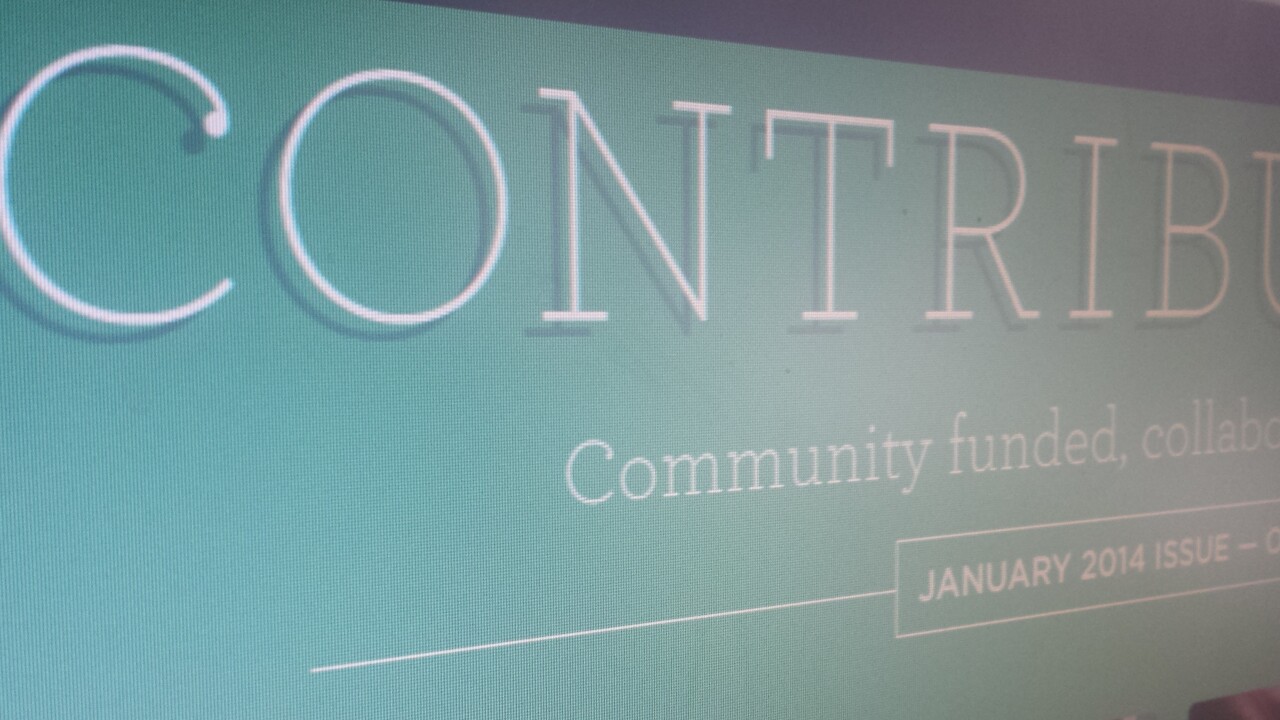
Guardian Media Group, the company behind the Guardian and Observer newspapers, has launched a new collaborative platform for journalists and writers.
Yesterday heralded the first public launch of Contributoria, an initiative that was funded initially as the 2012 winner of the Google/IPI News Innovation contest.
To use a somewhat crude analogy, Contributoria is something like a cross between Kickstarter, Blottr, Medium and Wikipedia, with members able to back proposals prior to them being written – so essentially only the most popular ones progress to publication.
How it works
Once you’ve logged-in, you can browse existing story proposals by ‘newest’ or ‘nearing target’.

For example, if you really want to learn about how dirty the supply chain is around your chocolate, coffee and smartphone, well, you can give it your backing. If enough people agree, this could see the story through to fruition.

In terms of writing for Contributoria, well, it’s not open to everyone yet. When signing up, you tick a little box to indicate that you’d like to be considered for a writer’s role, and you’ll be presented with this message:
“Thank you for registering your interest in becoming a Contributoria writer so you can join in the planning for the March 2014 issue. We will contact you shortly with more information about how you can start writing and creating proposals for Contributoria.”
Contributoria’s publishing cycle operates across three different phases – planning, production and publication. So a story is proposed one month, with members backing said ideas using points allocated to them from membership fees they pay – this system isn’t in place for the beta phase and it remains free for now. There’s no word yet on how much this will eventually cost, but published writers will be remunerated via the membership funding pool.
And when submitting a proposal, a writer will stipulate how much money they would like to receive for their work.

The platform taps collaborative editing tools (powered by Poetica) to encourage writers to work together the second month to work towards a final product, with others suggestion edits. Final versions of articles are then published in the third month, and are free to access by the public AND re-use with a Creative Commons license. The main proposer/writer retains the byline for the article, even if there is substantial input from the community, who can provide feedback as to how the article should take shape.
To give you an idea of what kind of stories are currently making the grade according to the crowd, you can take a peek inside the current issue, which includes The rise and rise of erotica for women and Why we should all take notice of Edward Snowden.
“Contributoria is designed to operate like a cooperative and inspire professional writers and journalists to support each other,” explains Editor and co-founder Sarah Hartley. “Finding new ways to fund quality journalism for freelance writers will help keep a diversity of published voices online.”
It will be interesting to see how this one pans out, and if nothing else it’s a good experiment in open journalism that should provide some insights as to the viability of the model in the future.
The Guardian is one of the most experimental British newspapers, launching everything from an API for its content, to N0tice, another of its testbed projects that we previously noted has real potential to take reporting and news gathering in new directions. After breaking cover in 2011, it finally left its closed beta phase in March last year.
Get the TNW newsletter
Get the most important tech news in your inbox each week.





